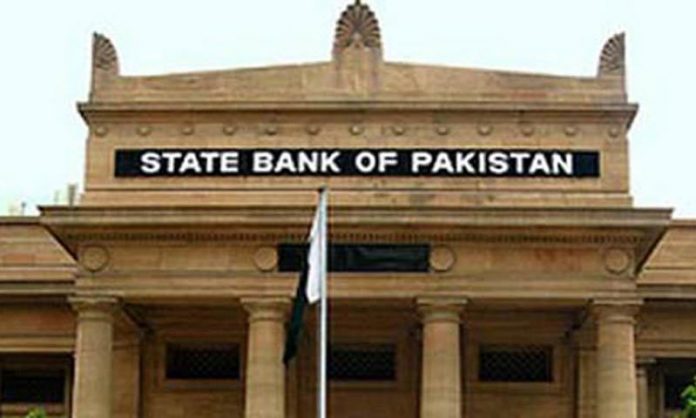The State Bank of Pakistan (SBP) raised Rs 2.369 trillion in a treasury bill (T-bill) auction held on Wednesday against a target of Rs 2.250 trillion.
Participation remained huge with SBP data showing bids totaling Rs 4.273 trillion were received. This is against debt maturity of Rs 2.43 trillion.
Tenders for the sale of three-month, six-month and 12-month T-bills were invited by SBP through primary dealers on September 20, for settlement on September 21. Bids for the shortest-term bill amounted to Rs 3.855 trillion, while those for the six-month and 12-month tenures totaled Rs 364 billion and Rs 358 billion, respectively.
According to the auction results shared by the SBP, the central bank was able to raise Rs 2.355 trillion through the three-month T-bills, and Rs 6 billion and Rs 8 billion through the six-month and 12-month T-bills.
Yields of all tenures declined from the previous auction held on September 6, when it appeared the market was expecting the policy rate to be hiked by around 200 basis points (bps).
However, in a surprising move, the central bank’s Monetary Policy Committee in a meeting on September 14, decided to maintain the policy rate at 22 percent. According to today’s auction results, the cut-off yield for the three-month T-bills was 22.789 percent, down 171 bps from the yield of 24.499 percent in the last auction.
Similarly, the yields for six-month and 12-month T-bills were 22.8 percent and 22.9 percent, respectively. These showed a decline of 199 bps and 217 bps compared to the cut-off yields for the September 6 auction.
How do T-bill auctions work?
T-bills are short-term government securities that are issued by the government of Pakistan and distributed in the primary and secondary markets by the SBP. These highly liquid government securities have sovereign guarantees and a fixed rate of return, which is referred to as a yield. T-bills are a tool for raising short-term cash by governments.
Banks are allowed to hold this security in an Investor Portfolio of Securities (IPS) account for their customers. Investors can buy these securities in a competitive auction in the secondary market, or a non-competitive auction in the primary market.
On the day of the auction, primary dealers (banks and brokerage houses) offer bids for T-bills with a certain yield. This yield is determined by policy rates, market sentiment and future expectations. A certain cut-off yield is announced that renders all the bids below that rate as accepted. The dealer pays the SBP a discounted amount for the bill, which is returned in full at maturity factoring in the yield of the T-bills.
























